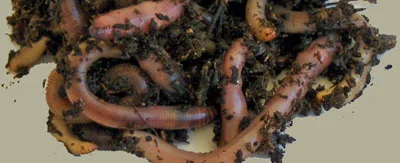Tips for Winter-Time Worm Farming
Since much of the country is now in a deep-freeze, it's a good time to point out some cold weather precautions you should consider if you are growing worms.If you're in milder winter areas:
- During cold weather, moisture in your bedding should be on the dry side
Not dry, mind you. But dry-er. Still adhere to the moisture level guidelines. Just lean to the dry side to make the bedding less cold. - Make sure your bedding is deep enough.
The deeper the bedding the more insulation from the cold, the longer it takes to freeze, and the more protected your worms will be from colder temperatures. - When possible, have your worms in a sheltered area.
The more protected your worms, the less damage. - Feed less.
If your worms aren't in a climate controlled building, they go dormant and eat much less. To prevent "acid poisoning", don't overload the bed with more food than they will consume.
If you're in harsher winter areas:
- Frankly, you should have your worms in buildings or
- Mulched heavily to prevent the worms and bedding from freezing
- Follow the moisture and feeding recommendations from above
Worm Growing Tip
Worms go dormant when kept below 60 degrees. Worms maintained in temperatures in the low 70's remain active, breeding and growing. So, if possible, keep your worms in temperatures that you enjoy.Successful Worm Business Resources:
 There are many other worm growing tips as well as how to set up your worm farm, how to grow earthworms, and troubleshooting tips in my Worm Farm Manual: A Step-By-Step Guide To Raising Earthworms. Order today and get started growing earthworms.
There are many other worm growing tips as well as how to set up your worm farm, how to grow earthworms, and troubleshooting tips in my Worm Farm Manual: A Step-By-Step Guide To Raising Earthworms. Order today and get started growing earthworms.Other Worm Resources:
European Nightcrawlers: One tough fishing worm. You could be the exclusive source in your area. Great composting wormWorm Farm Manual: See what's in it. Just one tip can save you valuable time and money.


